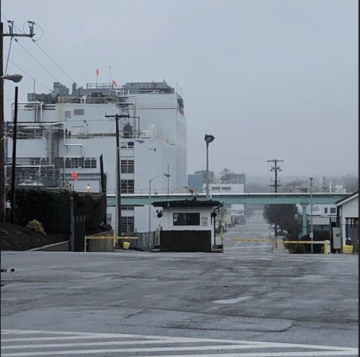RI Cities and Towns Sue McKinsey — Allege RICO in “Opioid Marketing Enterprise”
Tuesday, October 04, 2022
Rhode Island cities and towns this week sued McKinsey, claiming the consultant “played an integral role in creating and deepening the opioid crisis.”
The lawsuit alleges that McKinsey “participated in and helped orchestrate a broad scheme to deceptively market opioids” - and “knew of the dangers of opioids and of Purdue’s prior misconduct, but nonetheless advised Purdue to improperly market and sell OxyContin.”
The State of Rhode Island, via Attorney General Peter Neronha, had already settled with McKinsey in 2021 for $2.59 million in a multi-state settlement for having “turbocharged” the opioid epidemic.
GET THE LATEST BREAKING NEWS HERE -- SIGN UP FOR GOLOCAL FREE DAILY EBLASTNow, 31 of Rhode Island's 39 cities and towns are claiming that McKinsey was part of an “opioid marketing enterprise” — and a “racketeering influenced and corrupt organization” — and are seeking their own damages.
GoLocal spoke with attorney James Peterson, who is based in West Virginia and is representing the plaintiffs.
“There’s never enough money to go around,” said Peterson, of the prior settlement with the states. “The money received by the [state] Attorneys General, they parsed it out to agencies who were assisting [with the opioid crisis response] and needed outreach."
“In most states, none of the money went to cities, counties and towns. They want money to take care of people in their own community," said Peterson of the plaintiffs who he represents.
Multidistrict Litigation
The 91-page lawsuit charges four counts — Racketeer Influenced and Corrupt Organizations (RICO); Public Nuisance; Civil Conspiracy; and Unjust Enrichment.
“Their sole goal was to up-sell the opioids….and they were obviously successful in selling death,” said Peterson, of McKinsey in its consulting for OxyContin maker Purdue Pharma.
“The allegations are they conspired together with Purdue to upsell [opioids] for profit — they wouldn’t have settled with the Attorney Generals otherwise,” said Peterson.
Peterson explained that the Rhode Island lawsuit is just one of a number across the country, and that it will end up in multidistrict litigation.
“No one wants to bankrupt the companies. You can’t live with drugs or without them, but you have to be a responsible citizen,” said Peterson.
Sacklers Tried to Separate Themselves From Purdue - Launched Company in RI
The lawsuit also states, "At the time Richard Sackler communicated these plans to distance the family from Purdue, the Sacklers had already established a second company, Rhodes Pharmaceuticals L.P. (“Rhodes”). The Sacklers established Rhodes four months after the 2007 guilty plea. Rhodes’ purpose was to sell generic versions of opioids. It was, in other words, a way for the Sacklers to continue to make money off of opioids while separating themselves from Purdue.
By 2016, Rhodes held a larger share of the opioid market than Purdue. Through Purdue, the Sacklers controlled 1.7% of the overall opioid market. When combined with Rhodes, however, the Sacklers’ share of the overall opioid market was approximately 6% of all opioids sold in the United States."
Rhodes was located in Coventry, Rhode Island -- see the GoLocal Investigation in 2018 into the company HERE.
The plant in Coventry has been sold. It is unclear what materials are now made at the facility.
The suit further claims that Purdue hired McKinsey to "Devise and Implement an OxyContin Sales Strategy Consistent with the Sacklers’ Goals."
"The Sacklers faced a problem: the need to grow OxyContin sales as dramatically as possible so as to make Purdue an attractive acquisition target or borrower, while at the same time appearing to comply with the Corporate Integrity Agreement. Purdue and the Sacklers were well aware of the constraints posed by the Agreement. Indeed, during a May 20, 2009 Executive Committee Meeting, the discussion led to whether Purdue should have a single sales force marketing all Purdue products, including OxyContin, or instead to 'create a separate Sales Force for Intermezzo (a sleeping pill) that would be comprised of approximately 300 representatives,'"according to the suit.
“We believe we have an extremely powerful case — something has to give,” said Peterson. “No company has enough to take care of these problems.”
McKinsey did not respond to request for comment.
Related Articles
- McKinsey Never Told FDA It Was Working for Opioid Makers While Also Working for Agency
- EDITORIAL: RI’s Opioid Settlement—$114 Million Goes to Government, None to Families of Victims
- RI to Receive $2.5 Million Settlement After McKinsey Found to Have “Turbocharged” Opioid Epidemic
- Sen. Warren Calls for Investigation Into Raimondo’s Husband’s Firm McKinsey & Co
- Raimondo Receives $60k in Donations from McKinsey - Husband’s Firm Tied to Saudis Targeted Critics
- VIDEO: Raimondo, Moffit Need to Comment on McKinsey Saudi Report, Says Fung
- SEE VIDEO: Sackler’s RI Connections - Raimondo, Rhodes Technology, Education Reform and More
- RIDOH Issues Public Health Alert Due to Increase in Opioid Overdoses
- Police Release Photos of Suspects in Recent Pharmacy Opioid Robberies in Providence
- Providence Pharmacy Robbed of Opioids at Gunpoint Monday Morning - Second in One Week
- Police: Armed Suspect Robs Pharmacy in Providence — of Opioids
- Opioid Settlement Funds: Let’s Avoid the Mistakes of the Tobacco Settlement - Drs. Braun and Rich
- Foulkes Talks Education, Mandating Vaccination for Children, and Her Role at CVS in Opioid Crisis
- Legal and PR Nightmare - CVS and Foulkes Are Haunted by Their Roles in Opioid Crisis
- CVS, Walgreens & Walmart Ordered to Pay $650M for Role in Opioid Crisis - Blow to Foulkes’ Campaign
- Foulkes’ Time at CVS Comes Under More Scrutiny - NH Files Suit: CVS “Helped Fuel an Opioid Epidemic”
- EDITORIAL: Former CEO Offended by Ad Must Be Livid at Jury Hitting CVS for Role in Opioid Crisis
- Political Scientist: Pelosi’s RI Visit Trumped by Foulkes’ Failure to Take Responsibility on Opioids
- VIDEO: CVS Health and Walmart Agree to Pay West Virginia $147.5 Million for Role in Opioid Crisis
- Purdue Pharma Considers Bankruptcy, Raimondo Refuses to Answer Questions About Ties to Company
- Top Anti-Tobacco Lawyer Moore Zeroes in on Purdue Pharma and Implications to RI Are Complex
- UPDATED: Purdue Pharma and Sackler Family Offering $10B to $12B to Settle Opioid Cases
- RI Has Not Agreed to Proposed Settlement with Purdue Pharma, Neronha Claims
- Jonathan Sackler Dies - An Owner of OxyContin-Maker Purdue Pharma and Multiple RI Ties
- 7 Things RIers Need to Know About Purdue Pharma Filing for Bankruptcy
- RI AG Announces $45M Settlement with Purdue Pharma and Sacklers—Family Will Remain Billionaires
- Raimondo’s Donor Sackler Personally Named in New Opioid Lawsuits — “Conspiracy and Fraud”
- Raimondo Donor Sackler Tied to Opioid Crises, Has Donated Millions to RI Charter School Company
- VIDEO: Raimondo on Refusing to Return Sackler Money
- Raimondo’s Yale Ties Linked to Millions in Sackler Money
- Protest in Boston Over Sackler Donations, Raimondo Continues to Refuse to Return $12K
- Whitcomb: 6/10 Connector Conundrum; Send it Back to the Sacklers; Talking Up Tuna; Not-So-New NAFTA
- Raimondo Refuses Again to Return Sackler Money on Democratic Governors Association Press Call
- Documents Show Raimondo’s Donor Sackler Tied to Targeting Veterans with Opioids
- Whitcomb: Springtime for Public-Employee Unions; Sacklers at Tufts; Wisdom Through ‘Loafing’
- EDITORIAL: Kudos to Raimondo for Donating Sackler Money, Time for Neronha to Step Up
- NEW: NY AG Alleging RI Company Used By Sacklers to Move Millions to Family Controlled Trusts
- Raimondo Announces She Will Give Political Donations From Sacklers, After GoLocal Investigation
- CVS Issues Statement on Landmark Opioid Decision in Federal Court Case
- Foulkes Refuses to Respond to Questions About CVS and Her Role in Opioid Crisis - Lawsuits Pile Up
- CVS Found Liable in Federal Case for Role in Opioid Crisis, Foulkes Refuses to Answer Questions
- Foulkes Needs to Answer Questions and Apologize for Role in Opioid Crisis, Says Political Scientist
- How Brown University’s Medical, Public Health Schools Are Tackling Opioid Crisis in RI - LIVE
- NEW: Brown University Awarded Two NIH Grants Totaling $6.8M to Combat Opioid Crisis
- Prov Woman Pleads Guilty to Creating & Using Fraudulent Opioid Prescriptions
- New Brown University Study: Expanded Treatment in Prisons Can Reduce Opioid Overdose Deaths by 31%
- RI Cities and Towns Sue McKinsey — Allege RICO in “Opioid Marketing Enterprise”





